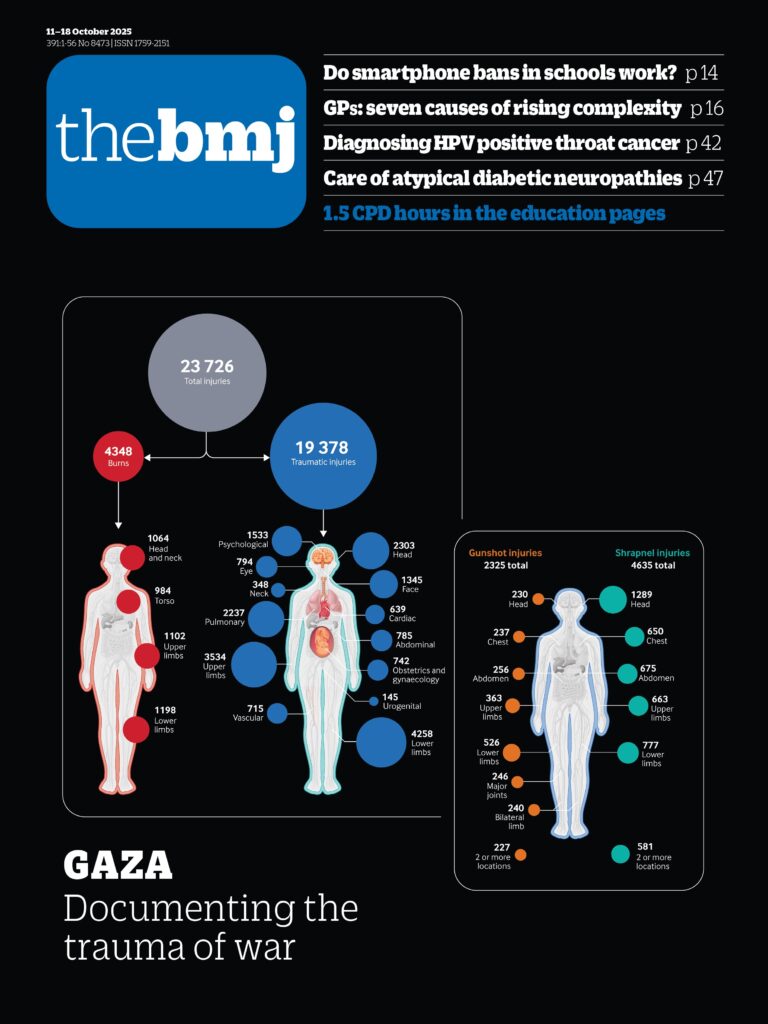The professional standards expected of doctors do not change on social media, says Sabira Hughes
Many doctors—just like everyone else—will hold strong opinions on emotive issues and global political events. Understandably, social media can be the go-to platform to share views that we feel passionate about—it is instantaneous, the audience is vast and responsive, and the online disinhibition effect can empower us. Hitting that “post” button can provide emotional release and a rush of validation as reactions start to appear, but this can quickly be followed by regret.
Social media has been the downfall of the careers of several high profile individuals. Although doctors might not consider themselves high profile, they too are exposed to personal and professional risks from expressing strong views on social media. These professional hazards are amplified when it comes to divisive or politically polarising topics. For example, as the Israel-Palestine conflict escalated, the General Medical Council (GMC) revealed that it had received a high volume of complaints about online comments made by doctors about the war.1
It can be frustrating to some doctors that even if they are posting in a personal capacity, the public are still likely to see them solely as a doctor and view their comments through this lens. The professional standards expected of doctors do not change just because they are communicating through social media, rather than in person or through another channel.
A social media post made by a doctor is at risk of misinterpretation by a patient, colleague, or others who see it. They may take offence or misunderstand the meaning—particularly given the brief nature of some social media channels that have a character limit. Even “liking” or adding an emoji indicating agreement to a post from a controversial public figure, or on a divisive topic, could cause doctors professional damage.
In its guidance on good medical practice, the GMC makes clear that doctors must not use social media to abuse, discriminate against, bully, harass, or deliberately target any individual or group.2 The GMC requires a doctor’s conduct to justify the trust that patients place in them and the profession. It states: “How you behave when using social media matters. Medical professionals, like everyone else, have rights to freedom of belief, privacy, and expression. But exercising these rights when using social media as a medical professional has to be balanced with the possible impact on other people’s rights and interests.”2 Achieving this balance can be difficult.
It is worth bearing in mind that even seemingly confidential exchanges can find their way into the public domain, potentially leading to unintended consequences. For example, content uploaded anonymously can, in many cases, be traced back to its point of origin. Communications via instant messaging apps or in private groups could also become public.
The GMC is clear in setting out its legal duty to investigate any concerns raised that reach its fitness to practise threshold, and this duty includes scrutinising online behaviour that may undermine public trust in the profession.
As well as heeding guidance from the regulator, it is important for doctors to be familiar with any specific guidance that their employer has on social media use and, of course, the law. Many trusts and private hospitals have their own information governance policies that may have specific requirements for a doctor to follow, and a breach of any organisational policy may result in disciplinary action by their employer.
Ultimately, doctors are responsible for what they write and for the digital footprint that it leaves behind. It is important for doctors to think carefully before posting on any social media platform and always avoid posting in haste or if emotions are running high after a long and difficult day. All doctors should ask themselves the following questions before posting on social media (and if the answer to any of these is no, then it is best not to post):
-
Would I say this out loud to a group of patients, peers, or even a family member?
-
Could this comment be viewed by some as offensive or discriminatory?
-
Could what I am about to say be viewed as putting the reputation of my profession at risk?
-
How might my employer or the GMC view this comment, and could I defend it?
When used carefully, social media can be a powerful tool for doctors to advocate for important causes, use their voices positively, and engage with the public in a meaningful way. This can strengthen trust in the medical profession. Errors in judgment, however, can be costly.
Footnotes
-
Competing interests: Medical Protection Society membership provides the right to request access to expert advice and support on clinical negligence claims, complaints, GMC investigations, disciplinaries, inquests, and criminal charges such as gross negligence manslaughter.
-
Provenance and peer review: Commissioned; not externally peer reviewed.
-
AI use: None used.

